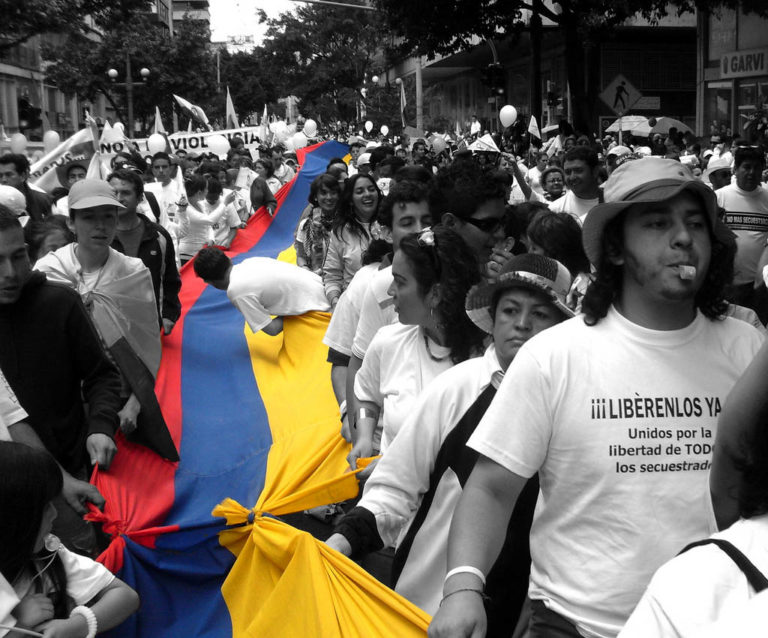By Katherine Sheets, Contributing Writer
Colombian President Juan Manuel Santos signed a peace treaty with the country’s largest rebel group to end 52 years of fighting on Sept. 26. However, the deal was voted down in a public referendum on Oct. 2.
Rodrigo Londono, leader of the Revolutionary Armed Forces of Colombia (FARC), signed the accord promising that the left-wing group would lay down their arms and end the guerrilla fighting that has been happening for decades.
“I would like to ask for forgiveness for all the pain that we may have caused during this war,” Londono said at the signing ceremony, according to the BBC.
FARC was founded in 1964 as an armed wing of the Communist Party to fight the inequality plaguing Colombia. They mainly attacked Colombian security forces and are responsible for thousands of kidnappings for ransom.
Under the new deal, FARC will become an organized political party and be guaranteed at least ten seats in Congress for the next two legislative periods. This proposition is causing discord among the Colombian people, as many of FARC’s victims were civilians, The New York Times wrote.
[perfectpullquote align=”right” cite=”” link=”” color=”” class=”” size=””]“I would like to ask for forgiveness for all the pain that we may have caused during this war,” Londono said at the signing ceremony, according to the BBC.[/perfectpullquote]
The New York Times also reported that some 220,000 people died and over five million were displaced during the war. Although the country wants peace, many believe the rebel leaders should receive heavier punishments for their actions. Former Colombian President Alvaro Uribe is among those who are angry that FARC leaders will enter Congress without serving jail sentences, according to The New York Times.
Before the treaty can be enforced, it must be approved by public vote on Oct. 2. Santos, however, told the BBC he was “very, very confident” that most Colombians would vote to ratify the deal. If they do not, he believes the conflict will begin all over again.
Despite this, fewer than 38 percent of voters cast ballots in the referendum, and 50.2 percent voted to reject the agreement, leaving 49.8 percent to vote “yes,” according to the BBC.
“Now we have to decide what path to take so that peace will be possible,” Santos said in an article by The Washington Post, “I won’t give up.” Londono said FARC is still committed to ending the war, but the future for both the rebels and the government is unclear. If peace negotiations reopen, FARC leaders will almost definitely be subject to harsher terms.
Additionally, Colombia’s second largest rebel group has declared a ceasefire until the vote. Negotiations between the National Liberation Army (ELN) and the Colombian government have been delayed for months due to continuous kidnappings, but the FARC deal seems to be impacting ELN leaders, who made an announcement, cited in a BBC article, saying the group wants to “find solution to difficulties.”




